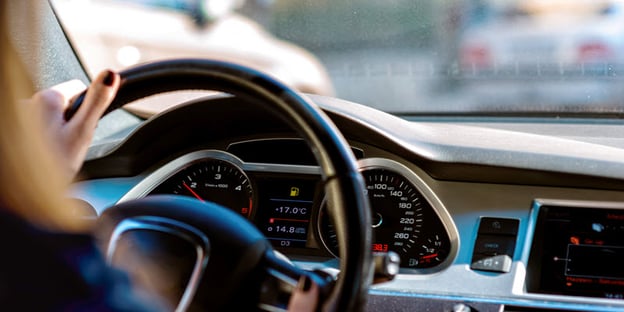Guide to Leasing a Car
By leasing a car, you’ll receive a vehicle that you can drive for a fixed number of miles and months. You can think of leasing a car like renting an apartment rather than purchasing a house. With a car lease, there’s less long-term commitment, but you’ll still have to pay some money in order to use the car.
Leasing a car is often less costly than purchasing a car with an auto loan. On average, drivers who lease a car instead of buying pay $113 less on average per monthly payment, according to Experian’s State of the Automotive Finance Market report. Given this information, leasing sounds great, right? While leasing a car can be a good choice for some people, there are several downsides to leasing as well. Read on to learn more about leasing a car and how to avoid common car leasing mistakes.
What is a Car Lease?
If you choose to lease a car, you’re basically “borrowing” a car instead of buying a new or used vehicle. Car leases usually have a three-year contract or a four-year contract. Your monthly payment amount will be calculated based on the car’s new value and the anticipated residual value of the car once your lease is up. Your lease payments cover the depreciation value of the car.
Beyond lease payments, you’ll also pay finance charges when you lease a car. Finance charges follow the same rule as any purchase that requires a loan. The better your credit score is, the lower your interest rate will be. In addition, when leasing a car you’ll need to pay a small fee before driving off of the lot in your new car. This money covers taxes and other fees. There is also the possibility of lower monthly payments throughout the term of the lease if you put additional money down up front.

Mistakes to Avoid When Leasing a Car
1- Paying Too Much Money Up Front
Low monthly payments may be advertised by dealerships, but there’s usually a catch. Lower monthly payments typically require you to put down several thousand dollars up front before you are able to get the affordable payment amount.
In the event that something happens to the car in the first few months of your lease, your insurance company would reimburse the leasing company, but you won’t be reimbursed for your down payment, in most cases. Because of this, try to avoid spending less than $2,000 upfront when leasing a car. If the car is stolen or wrecked before the end of your lease, at least you won’t be out a large amount of money.
2- Opting Against Purchasing Gap Insurance
Gap insurance is insurance that covers the “gap” between what you still owe on your lease and the total value of the car. Many leases include gap insurance, but always double check to see if yours does. Traditional insurance companies may give you a cheaper option for gap insurance than the dealership will. Regardless of which gap insurance you choose, be sure not to skip this, as it can be a greatly beneficial investment should anything happen to the car.
3- Underestimating The Number of Miles You’ll Put on The Car
Leasing contracts generally have an annual mileage limit. These can range from 10,000 to 15,000 miles annually. At the end of your lease, you could be charged an extra fee per additional mile if you went over your mileage limit. These extra charges can add up fast, and you could end up paying thousands of dollars at the end of your lease for exceeding your limit.
In order to combat the possibility of accruing extra charges, be sure to understand your driving habits before you lease a car. If you know that you’ll drive further than your lease agreement allows, you may be able to ask for a higher mileage limit, but this will likely increase your monthly payment.
Get Advice From Financial Experts Before Leasing a Car in Wisconsin
If you’re still on the fence about whether leasing a car is the right choice for you, or if you want to avoid any additional leasing pitfalls, seek assistance from a trusted financial advisor to ensure that you make the right choice and get the best lease terms possible. Our team at Sorge CPA is equipped to handle all financial and accounting questions, big or small, from individuals in Wisconsin. Contact us today at (608) 699-6577.


